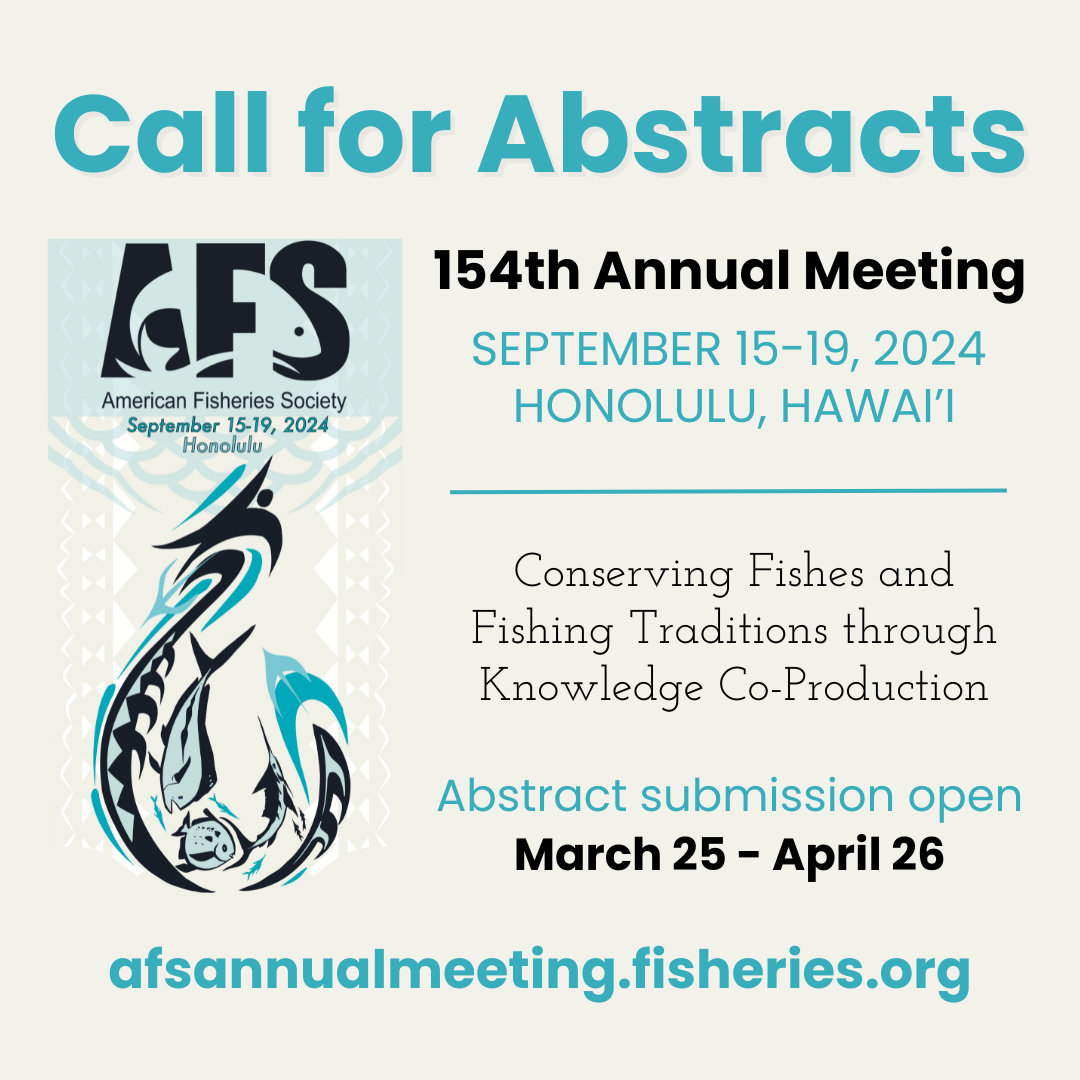Drue Winters, AFS Policy Director. E-mail: [email protected]
Throughout its nearly 150-year history, the American Fisheries Society (AFS) has had an interest and a role in shaping state and federal natural resource policy. However, the Society’s level of engagement and the willingness of its membership to take positions on important policy issues has varied over time.
One principle has remained constant: when we advocate, we speak for the fish, fisheries, and aquatic resource professionals. We are thoughtful, measured, and fact based. We do not engage in partisan bickering, we do not represent business interests, and we do not take a national position when our membership is divided or when an issue is better handled at the local or regional level. Still, there is much we can do!
Though AFS is not an advocacy organization, there is a valuable role for AFS in the fisheries policy arena. Our members can provide sound science to help better inform decision making, advocate for critical funding for fisheries research or conservation, and provide management expertise to inform the policy debate.
Over the last few years, AFS has made strides to modernize its approach to policy. Last year, AFS identified several priority policy issues for engagement ranging from research and conservation funding, to monitoring and mitigating climate-related impacts on coastal and inland species, and even to aquaculture. More recently, the organization repopulated its Resource Policy Committee with representatives from each section and division so that we have a better conduit to the vast scientific expertise within AFS to better inform decision makers on key issues.
In the newest iteration of the AFS policy program, we hope to position the organization as a “thought leader” on fisheries policy issues, especially where the management or scientific expertise of our members can help to resolve complex problems. To be most effective moving forward, it is my view that we will need to focus our human and financial resources on a few critical issues that are well suited to an organization of distinguished aquatic resource professionals and to develop an engaged membership who will answer the call to action.
Educating and informing decision makers about fisheries science and management is an effective and important policy tool. Who is better suited to do this than those with a trust responsibility to manage aquatic resources, those with superior academic credentials, and those with specialized expertise or decades of fisheries experience? One might even argue that our members have a professional obligation to engage on the important issues of our time.
Many of you have already gained broad exposure to the policymaking process, whereas others view it as an intimidating black box. Regardless of your level of experience, there are many ways to effectively contribute to AFS policy work.
A well-crafted letter based on sound science in support of a particular policy is an easy and effective way to engage. Consider drafting a letter on an issue that is important to your Unit or answering the call to provide scientific information for us to include in correspondence we develop in conjunction with other organizations. Did you know that it takes several weeks for a letter to be delivered to a member of Congress via U.S. mail? We can help you craft an effective message and hand-deliver the letter to decision makers. Your correspondence provides a great reason for us to meet with elected officials in person!
In conjunction with a Hill visit, it is helpful to leave behind an issue-specific fact sheet with congressional staff. These documents provide more background on an issue than can be delivered in a brief meeting and serve to reinforce our message. Assist us in crafting a fact sheet by contributing your subject-matter expertise to ensure the best available science informs policy.
From time to time, AFS hosts congressional briefings on Capitol Hill on specific topics. In those cases, we seek members with topical expertise and the ability to convey science in simple language. If you are skilled at communicating and are comfortable with the halls of Congress, please consider serving on an expert panel when the opportunity arises.
If wading through a wetland is more appealing than pounding the pavement in Washington, volunteer to coordinate a field visit for a member of Congress or their staff to highlight a critical program, project, or funding need. A compelling local story may sway a lawmaker who does not yet have a set position or can help to solidify his or her support. We can help walk you through the elements of a successful event.
It is my personal goal to help demystify the policy process; provide timely and relevant information on policy developments; identify opportunities for engagement; help translate complex, scientific information into messages that are useful to decision makers; and, most of all, advance policies that benefit and promote the wise use of aquatic resources.
I encourage you to follow our policy communications in the AFS newsletter, on our website, and on social media, and I challenge each of you to consider how your talents, expertise, or relationships can be used to further the AFS policy program for the benefit aquatic resources, the profession, and the public.





